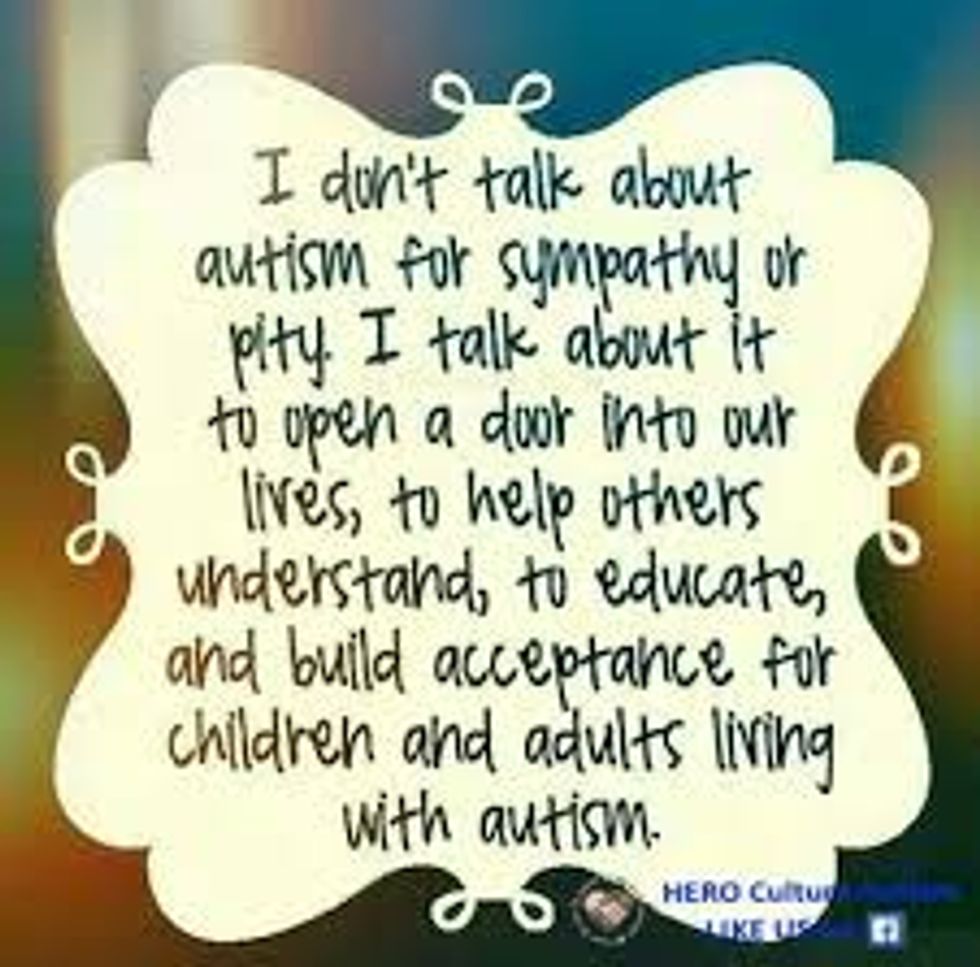In honor of Autism Awareness Month (April!), I am going to share with you my experience with the Young Athletes Program at Merrimack College. The Young Athletes Program is run to prepare children between the ages of two and seven for the Special Olympics. The children have intellectual disabilities including autism and down syndrome. We work on different motor skills every week, and it gives the children a chance to play and learn while giving their families a time to take a break and mingle with other parents they can relate too. I chose Young Athletes Program for my service learning requirement in a diversity class, and I am so glad that I did. Not only has my experience been fun, but it has challenged me and taught me so much about disabilities.
What drew me to the program was that I would be getting to work with young children, which I’ll do anything to play with cute little kids. But, I also wanted to get myself out of my comfort zone. I do not have a lot of experience with special needs, besides what I have learned from my mother who is a special education teacher. I knew that I would learn a lot more about disabilities, patience, and children in general. I was most nervous about unintentionally doing something to make a child uncomfortable and dealing with challenges I was not used to.
What I thought was absolutely amazing was that my buddy can follow directions best if they are written out for him or spelt out by the person talking. Instead of saying, kick the ball, I usually need to write it on a whiteboard or spell “K-I-C-K!” Not to mention he is 5 years old, and he can read and process when his mom spells out phrases quickly. That is amazing!
Being surrounded by other kids, I got to work with several other buddies in the program. One of the most valuable things I learned is how wide the autism spectrum is. I have always been super interested in how the brain works for different people. When it comes to autism, I find it so fascinating that each and every child with autism is so different, and how their brains work differently from each other. Many people do not realize that there are several forms of autism with a huge variety of characteristics, signs, and abilities.
According to Autism Society, Autism, or more specifically Spectrum Disorder, is defined as follows:
Autism spectrum disorder (ASD) is a complex developmental disability; signs typically appear during early childhood and affect a person’s ability to communicate, and interact with others. ASD is defined by a certain set of behaviors and is a “spectrum condition” that affects individuals differently and to varying degrees. There is no known single cause of autism, but increased awareness and early diagnosis/intervention and access to appropriate services/supports lead to significantly improved outcomes. Some of the behaviors associated with autism include delayed learning of language; difficulty making eye contact or holding a conversation; difficulty with executive functioning, which relates to reasoning and planning; narrow, intense interests; poor motor skills’ and sensory sensitivities. Again, a person on the spectrum might follow many of these behaviors or just a few, or many others besides.
In my experience, I have been able to see this play out. Some of the children cannot understand social cues. Some of them have echolalia (repeating what others say to them). Some are higher functioning. Some are lower functioning. Some of them are sensitive to certain sounds or stimulation. Some are nonverbal. I would never be able to list out all the unique aspects of people with autism. I think that being able to understand that every child is so different is helpful to me because I understand the difficulty of getting accommodations and making sure these children are getting the love and support they need to grow up like any kid should be able to. I also am more aware of the signs and I am able to put myself in their shoes.
I want to be an elementary teacher when I am older, and I know that this experience will help me a lot in the future when I am working in inclusion classrooms. In general, by working with people with intellectual disabilities, I now am more aware of autism and how to go about working with people in everyday life.
Autism is a wide spectrum, which can make it very difficult to understand. I think Autism Awareness Month is the perfect opportunity for people to learn more about it and help raise awareness. Read more about it, take part in fundraisers, or find some way to get involved. Addtionally, I highly recommend that any Merrimack students join Young Athletes Program and that any other people find a chance to volunteer with Special Olympics or another program for people with autism.




















